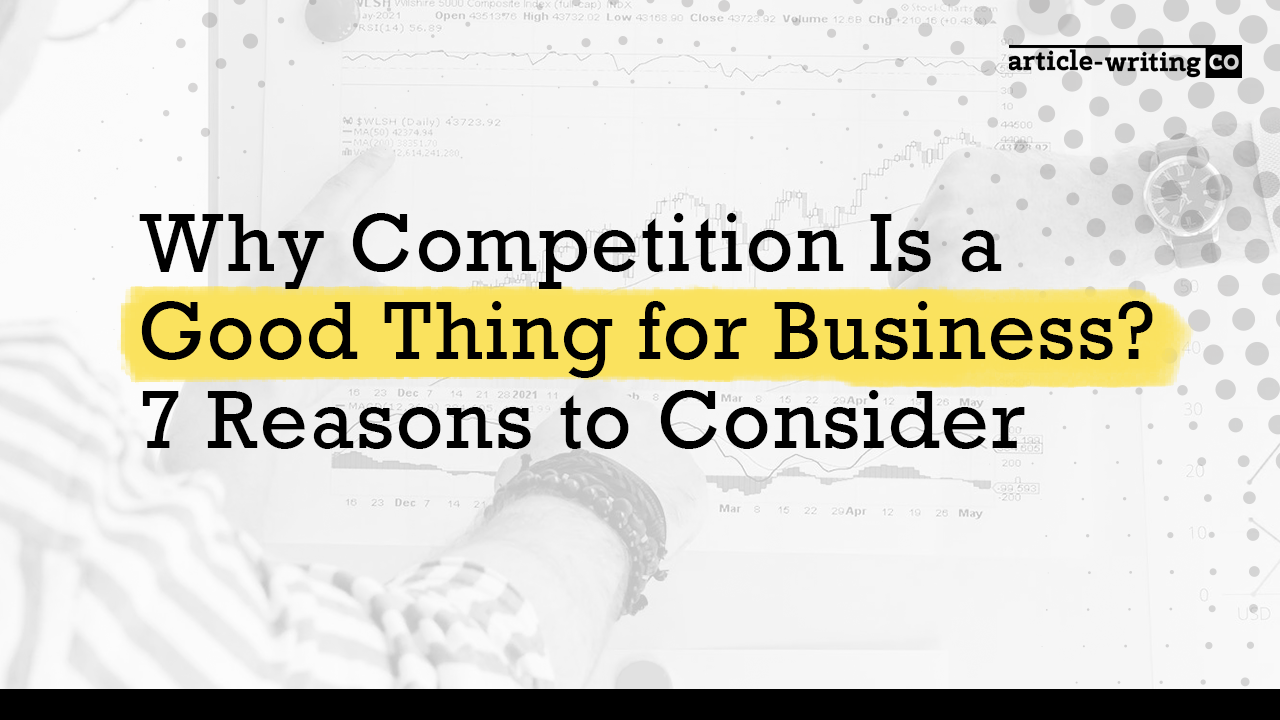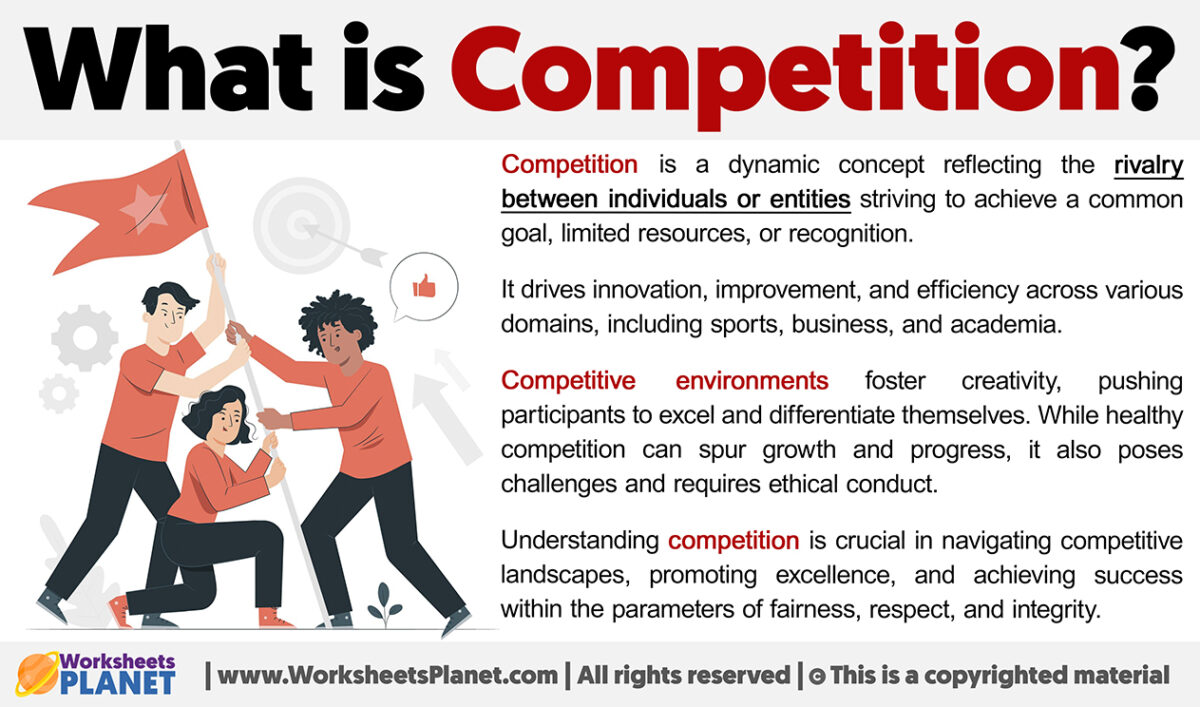Why Is Competition In Business Good

In an era defined by rapid technological advancements and shifting consumer preferences, the bedrock of a thriving economy lies in robust competition. But beneath the surface of lower prices and innovative products, competition fosters a dynamic environment that benefits not only consumers, but also businesses themselves, and the economy as a whole.
This article delves into the multifaceted advantages of competition in business, exploring its impact on innovation, efficiency, consumer welfare, and overall economic growth.
The Nut Graf: Why Competition Matters
At its core, competition compels businesses to strive for excellence. It forces companies to become more efficient, offer better products and services, and ultimately, deliver greater value to consumers.
This pressure cooker environment fuels innovation, drives down prices, and expands consumer choice, creating a virtuous cycle of economic progress.
Driving Innovation and Efficiency
Competition serves as a powerful catalyst for innovation. Facing rivals vying for market share, companies are compelled to invest in research and development, seeking new and improved products, services, and processes.
This relentless pursuit of innovation leads to technological advancements, increased productivity, and ultimately, economic growth. The Organisation for Economic Co-operation and Development (OECD), in its various reports, has consistently emphasized the link between competition and innovation.
Furthermore, competition compels businesses to operate more efficiently. Companies must streamline their operations, reduce costs, and optimize resource allocation to remain competitive.
This drive for efficiency translates into lower prices for consumers and increased profitability for businesses that can successfully navigate the competitive landscape.
Consumer Welfare: The Primary Beneficiary
Consumers are arguably the biggest winners in a competitive market. Competition leads to lower prices, a wider range of choices, and higher quality products and services.
Companies vying for customers are incentivized to offer competitive pricing, leading to significant savings for consumers. A study by the Federal Trade Commission (FTC) consistently shows how antitrust enforcement, aimed at promoting competition, benefits consumers through lower prices and greater innovation.
Moreover, competition expands consumer choice. A greater number of companies in a market means a wider variety of products and services available to meet diverse consumer needs and preferences.
Finally, competition often leads to higher quality products and services. Companies are compelled to improve their offerings to attract and retain customers, resulting in a higher standard of living for consumers.
Economic Growth and Opportunity
The benefits of competition extend beyond individual consumers and businesses, contributing to overall economic growth and opportunity. A competitive market fosters entrepreneurship, creating opportunities for new businesses to enter the market and challenge established players.
This dynamism fuels innovation, creates jobs, and expands economic activity.
"Competition promotes a more efficient allocation of resources, leading to higher overall economic productivity,"argues Professor Michael Porter of Harvard Business School, a leading authority on competitive strategy.
Furthermore, competition promotes a level playing field, ensuring that resources are allocated to the most efficient and productive uses. This leads to a more dynamic and resilient economy that is better able to adapt to changing circumstances.
The Counterarguments and Limitations
While the benefits of competition are undeniable, it's important to acknowledge the potential downsides. Intense competition can sometimes lead to cutthroat practices, such as predatory pricing or unethical marketing tactics.
Furthermore, some industries may be naturally prone to monopolies or oligopolies due to high barriers to entry or network effects. However, these situations often require regulatory intervention to ensure fair competition and prevent abuse of market power.
The Role of Regulation
Government plays a crucial role in fostering a competitive environment. Antitrust laws, designed to prevent monopolies and cartels, are essential for ensuring fair competition.
Effective regulation can prevent anti-competitive practices and promote a level playing field for businesses of all sizes. The Department of Justice (DOJ) actively enforces antitrust laws to protect consumers and promote competition in various industries.
Looking Ahead: The Future of Competition
In an increasingly globalized and digital economy, competition is more important than ever. The rise of new technologies, such as artificial intelligence and blockchain, is creating new opportunities for innovation and disruption, but also new challenges for maintaining a competitive market.
As we move forward, it will be crucial to adapt our regulatory frameworks to ensure that competition continues to thrive in the face of these evolving dynamics.
By fostering a competitive environment, we can unlock the full potential of our economy and create a more prosperous future for all.


















